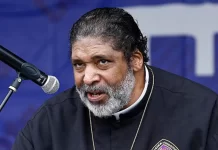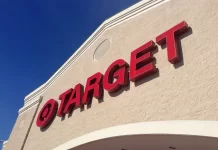Travis Atchison lights a Marlboro Red as he drives through South St. Petersburg. He’s hurrying toward a man who says he’s hearing violent voices in his head.
They’re telling the man to hurt people, and he thinks that if he listens to the voices, maybe they’ll leave him alone. He called the city’s emergency line from a community center full of children and families to ask for help.
Atchison’s partner, Addison Lackey, sits shotgun and updates him on the man’s mental health status and background based on what the emergency dispatcher pulled up after the call.
“It looks like he ran from police in the past,” Lackey says.
“Well, we’re not cops,” says Atchison before taking another drag of his cigarette.
They’re part of St. Petersburg’s Community Assistance and Life Liaison (CALL) program, which responds to crisis situations without police.
Light rain falls across Atchison’s windshield on this gray Saturday afternoon as soul music quietly sings from the speakers of his 2012 Toyota Camry with a busted front bumper. They’re closing in on the man in crisis, just a couple of miles away now.
Atchison and Lackey are both armed with nothing but their expertise in communication, de-escalation, and mental health. When cops show up to crisis situations, those in vulnerable positions often have adverse reactions, and because cops are carrying guns, situations can turn violent. Since 2015, nearly a quarter of people killed by police have had a known mental illness.
Critics of over-policing have called for mental health counselors to respond to certain situations instead of cops, which led to successful non-armed crisis responder programs like Cahoots in Oregon (stylized “CAHOOTS”). The success of such operations led Gulf Coast Community Jewish Family and Community Services (JFCS) to team up with the City of St. Petersburg to create the CALL program, a move in part made possible when the city decided not to hire 25 new police officers and instead invest in the CALL program.
Atchison is working toward his Ph.D. in Psychology with a specialization in addictions, and Lackey has a Bachelor’s in Communication Studies with a specialization in interpersonal communications. Prior to this job, Lackey worked at Little Caesars and has thrived in her new profession.
Both joined toward the beginning of the program’s launch in February. They’ve now entered “phase three” of their pilot program. Phase one and two involved a training period and riding along with police to calls. Phase three means that they ride without the police to an array of situations in which crime or violence has not yet occurred.
Pinellas and Hillsborough counties, along with the City of Tampa, all have mental health professionals that ride along with police, but the CALL program is the only one that rides without.
CALL workers know that most people who are in crisis just want someone to listen to their problems and to offer help. They know that those in crisis are often isolated, desperate and in need of a chance at redemption. They know that with their skillset, they have the best shot at giving that to the people they serve. As Atchison, Program Director for CALL, puts it, “We have our set of tools, and the police have theirs.”

















